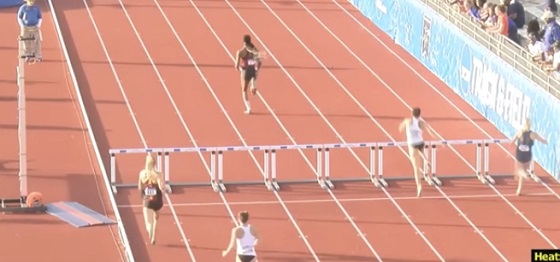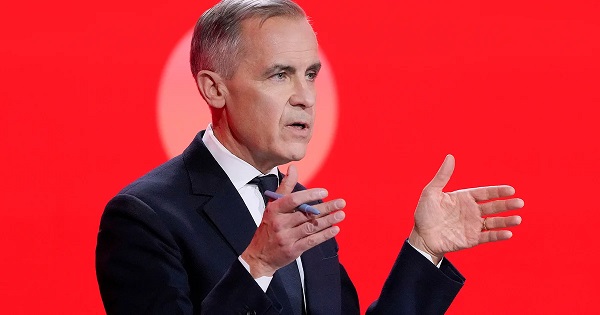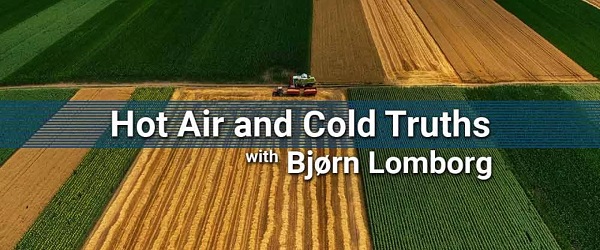Alberta
Convoy participants involved in highway collision in Southern Alberta
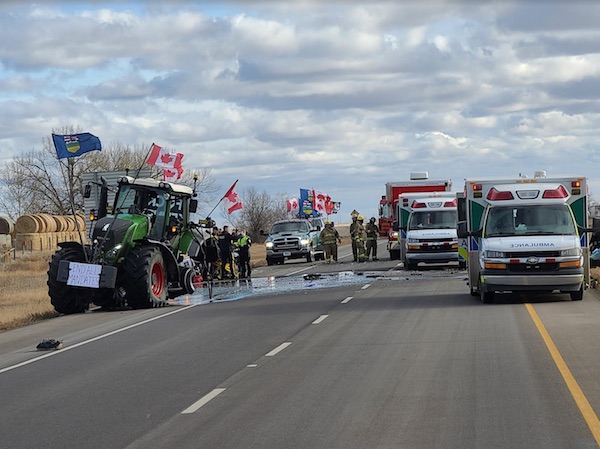
News Release from Brooks RCMP
Brooks RCMP on scene of three vehicle collision on Highway 1
Brooks, Alta. – On Feb. 5, 2022, at approximately 1:45 p.m., RCMP officers of the Brooks RCMP Detachment were called to a serious collision on Highway 1 just west of Brooks.
One farm tractor was moving slowly in a small convoy with at least one other pickup truck, when a second pickup truck struck the first truck in the rear bumper – pushing it off the road. The second truck continued forward and struck the rear left tire of the farm tractor, shearing it completely off.
Both the second truck and the tractor tire came to rest in the median ditch. The driver of the second truck had to be extracted from the vehicle.
The 45-year-old male driver of the second truck suffered non-life threatening injuries and has been transported to hospital. A 27-year-old female passenger in the first pickup truck also suffered non-life threatening injuries and was transported to hospital. The driver of the first pickup truck did not sustain any injuries. The 38-year-old male driver of the farm tractor had minor injuries.
The investigation into this collision continues.
The Alberta RCMP are aware of the multiple convoys and protests taking place around Alberta and are monitoring and deploying resources as needed to ensure public safety. While everyone has the right to freedom of expression and peaceful assembly, we remind individuals to do so within the confines of the law.
As a result of convoys, traffic in several areas of the province is extremely slow. We ask that everyone be lawful, respectful and patient when encountering slow-moving traffic.
This incident is illustrative of how large, slow moving convoys can greatly reduce the safety of our provincial highways. Travelling at the posted speed limit is meant to maintain the free flow of traffic, and will reduce the chance of other motorists growing impatient with delays in their travel.
Even on four lane highways, motorists are urged to be extra cautious when passing slow moving vehicles. They could be slowing down for a hazard which may affect you.
Alberta
Albertans have contributed $53.6 billion to the retirement of Canadians in other provinces

From the Fraser Institute
By Tegan Hill and Nathaniel Li
Albertans contributed $53.6 billion more to CPP then retirees in Alberta received from it from 1981 to 2022
Albertans’ net contribution to the Canada Pension Plan —meaning the amount Albertans paid into the program over and above what retirees in Alberta
received in CPP payments—was more than six times as much as any other province at $53.6 billion from 1981 to 2022, finds a new report published today by the Fraser Institute, an independent, non-partisan Canadian public policy think-tank.
“Albertan workers have been helping to fund the retirement of Canadians from coast to coast for decades, and Canadians ought to know that without Alberta, the Canada Pension Plan would look much different,” said Tegan Hill, director of Alberta policy at the Fraser Institute and co-author of Understanding Alberta’s Role in National Programs, Including the Canada Pension Plan.
From 1981 to 2022, Alberta workers contributed 14.4 per cent (on average) of the total CPP premiums paid—Canada’s compulsory, government- operated retirement pension plan—while retirees in the province received only 10.0 per cent of the payments. Alberta’s net contribution over that period was $53.6 billion.
Crucially, only residents in two provinces—Alberta and British Columbia—paid more into the CPP than retirees in those provinces received in benefits, and Alberta’s contribution was six times greater than BC’s.
The reason Albertans have paid such an outsized contribution to federal and national programs, including the CPP, in recent years is because of the province’s relatively high rates of employment, higher average incomes, and younger population.
As such, if Alberta withdrew from the CPP, Alberta workers could expect to receive the same retirement benefits but at a lower cost (i.e. lower payroll tax) than other Canadians, while the payroll tax would likely have to increase for the rest of the country (excluding Quebec) to maintain the same benefits.
“Given current demographic projections, immigration patterns, and Alberta’s long history of leading the provinces in economic growth, Albertan workers will likely continue to pay more into it than Albertan retirees get back from it,” Hill said.
Understanding Alberta’s Role in National Programs, Including the Canada Pension Plan
- Understanding Alberta’s role in national income transfers and other important programs is crucial to informing the broader debate around Alberta’s possible withdrawal from the Canada Pension Plan (CPP).
- Due to Alberta’s relatively high rates of employment, higher average incomes, and younger population, Albertans contribute significantly more to federal revenues than they receive back in federal spending.
- From 1981 to 2022, Alberta workers contributed 14.4 percent (on average) of the total CPP premiums paid while retirees in the province received only 10.0 percent of the payments. Albertans net contribution was $53.6 billion over the period—approximately six times greater than British Columbia’s net contribution (the only other net contributor).
- Given current demographic projections, immigration patterns, and Alberta’s long history of leading the provinces in economic growth and income levels, Alberta’s central role in funding national programs is unlikely to change in the foreseeable future.
- Due to Albertans’ disproportionate net contribution to the CPP, the current base CPP contribution rate would likely have to increase to remain sustainable if Alberta withdrew from the plan. Similarly, Alberta’s stand-alone rate would be lower than the current CPP rate.
Tegan Hill
Director, Alberta Policy, Fraser Institute
Alberta
Alberta Institute urging Premier Smith to follow Saskatchewan and drop Industrial Carbon Tax

From the Alberta Institute
Axe Alberta’s Industrial Carbon Tax
Aside from tariffs, carbon taxes have been the key topic of the election campaign so far, with Mark Carney announcing that the Liberals would copy the Conservatives’ long-standing policy to axe the tax – but with a big caveat.
You see, it’s misleading to talk about the carbon tax as if it were a single policy.
In fact, that’s what the Liberals would like you to think because it helps them hide all the other carbon taxes they’ve forced on Canadians and on the Provinces.
Broadly speaking, there are actually four types of carbon taxes in place in Canada:
- A federal consumer carbon tax
- A federal industrial carbon tax
- Various provincial consumer carbon taxes
- Various provincial industrial carbon taxes
Alberta was actually the first jurisdiction anywhere in North America to introduce a carbon tax in 2007, when Premier Ed Stelmach introduced a provincial industrial carbon tax.
Then, as we all know, the Alberta NDP introduced a provincial consumer carbon tax in 2017.
The provincial consumer carbon tax was short-lived, as the UCP repealed it in 2019.
But, unfortunately, the UCP failed to repeal the provincial industrial carbon tax at the same time.
Worse, by then, the federal Liberals had introduced a federal consumer carbon tax and a federal industrial carbon tax as well!
Flash forward to 2025, and the political calculus has changed dramatically.
Mark Carney might only be promising to get rid of the federal consumer carbon tax, but Pierre Poilievre is promising to get rid of both the federal consumer carbon tax and the federal industrial carbon tax.
This is a clear opportunity, and yesterday, Scott Moe jumped on it.
He announced that Saskatchewan will also be repealing its provincial industrial carbon tax.
Saskatchewan never had a provincial consumer carbon tax, which means that, within just a few weeks, people in Saskatchewan could be paying ZERO carbon tax of ANY kind.
Alberta needs to follow Saskatchewan’s lead.
The Alberta government should immediately repeal Alberta’s provincial industrial carbon tax.
There’s no excuse for our provincial government to continue burdening our industries with unnecessary costs that hurt competitiveness and deter investment.
These taxes make it harder for businesses to thrive, grow, and create jobs, especially when other provinces are taking action to eliminate similar policies.
Premier Danielle Smith must act now and eliminate the provincial industrial carbon tax in Alberta.
If you agree, please sign our petition calling on the Alberta government to Axe Alberta’s Industrial Carbon Tax today:
After you’ve signed, please send the petition to your friends, family, and wider network, so that every Albertan can have their voice heard!
– The Alberta Institute Team
-

 2025 Federal Election2 days ago
2025 Federal Election2 days agoPoilievre refuses to bash Trump via trick question, says it’s possible to work with him and be ‘firm’
-

 2025 Federal Election2 days ago
2025 Federal Election2 days agoPoilievre to let working seniors keep more of their money
-

 2025 Federal Election2 days ago
2025 Federal Election2 days agoVoters should remember Canada has other problems beyond Trump’s tariffs
-

 Community2 days ago
Community2 days agoSupport local healthcare while winning amazing prizes!
-

 COVID-192 days ago
COVID-192 days ago17-year-old died after taking COVID shot, but Ontario judge denies his family’s liability claim
-

 Daily Caller2 days ago
Daily Caller2 days agoCover up of a Department of Energy Study Might Be The Biggest Stain On Biden Admin’s Legacy
-
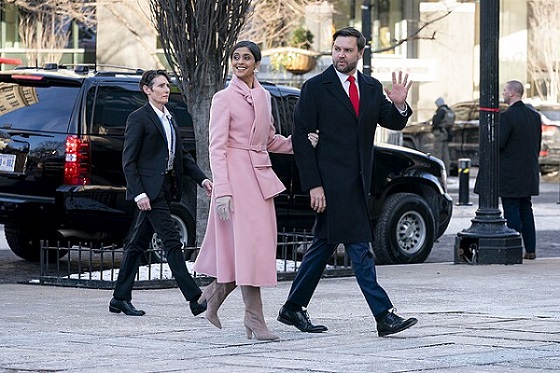
 International2 days ago
International2 days agoVice President Vance, Second Lady to visit Greenland on Friday
-

 Business2 days ago
Business2 days agoWhile “Team Canada” attacks Trump for election points, Premier Danielle Smith advocates for future trade relations



